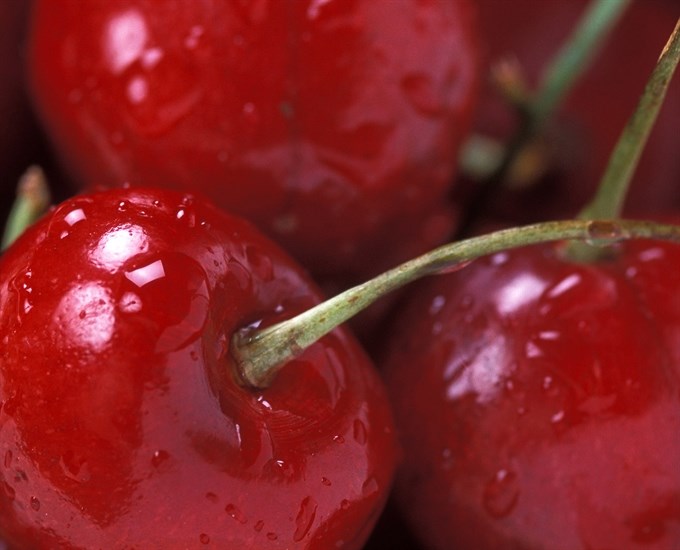
Image Credit: File Photo
June 22, 2018 - 12:11 PM
OKANAGAN - Some Okanagan cherry growers had to take expensive measures to rescue their crops after a downpour this week.
Torrential downpours soaked local cherry orchards yesterday, June 21, causing some growers to call on helicopters to help dry their crops, the B.C. Cherry Association says in a media release.
The cherry harvest is just getting going in B.C., the association says, and although local farmers are aware of the need for a good cleansing rain, they are hoping for minimal rainfall on their orchards for the rest of the season. If it continues to rain, many cherry growers may again be forced to use these aircraft to protect their investments, the association says.
“Hiring helicopters is not something we undertake lightly,” cherry grower and president of the B.C. Cherry Association Sukhpaul Bal says. “They are very expensive, and if there were another way to save our crop, we would.”
The use of helicopters can be annoying to neighbouring residents, although the association says most people are understanding. Hank Markgraf, Grower Services Manager at B.C. Tree Fruits says orchardists try to avoid helicopter use whenever possible.
“Growers understand that helicopter noise can be annoying to nearby residents, and they use helicopters only as a last resort. Orchardists use other means to prevent splitting first, such as the planting of split-resistant cherry varieties, or new varieties that ripen later in the summer when it’s usually dryer,” Markgraf says in the release.
WHY IS RAIN SUCH A THREAT TO CHERRIES?
Cherries that are nearly ripe have a high natural sugar content, and this draws in rainwater sitting on the fruit, causing it to swell until it breaks open, or splits, the association says.
“Industry representatives say the only practical way to remove rainwater from cherries is to blow it off,” the association says.
The powerful downdraft from helicopter rotors is highly effective in removing rainwater pooling in the stem “bowl” of cherries. Helicopters can dry an acre of cherries in about five minutes, however they cost growers between $800 and $1400 per hour of flying time. And although blowers attached to orchard tractors can also be used, the process takes 40 to 50 minutes an acre. In a larger orchard, the crop can be lost long before the drying process has been completed.
There is a significant financial impact from the loss of a cherry crop, the association says.
“The most immediate concern is for the farmer, whose family’s entire annual income is often tied to the outcome of this single crop,” the association says.
The B.C. cherry industry has an annual value in the neighbourhood of $150 million, and directly employs not only the orchard owners, but also pickers, sorters, packing facilities, marketers, distributors, and suppliers. It likewise benefits retailers, and people in other secondary industries, such as the tourist trade. Thus, protecting the grower’s investment is important to the local economy, and there is only a short window in which to do so, according to the association.
Whether growers will turn to further helicopter use this summer depends on the weather. The Thursday downpour experienced in most areas of the Okanagan put earlier-ripening cherry varieties at risk, but growers are hoping for a drying trend to help them out, and make everyone’s summer a success, the association says.
To contact a reporter for this story, email Charlotte Helston or call 250-309-5230 or email the editor. You can also submit photos, videos or news tips to the newsroom and be entered to win a monthly prize draw.
We welcome your comments and opinions on our stories but play nice. We won't censor or delete comments unless they contain off-topic statements or links, unnecessary vulgarity, false facts, spam or obviously fake profiles. If you have any concerns about what you see in comments, email the editor in the link above.
News from © iNFOnews, 2018